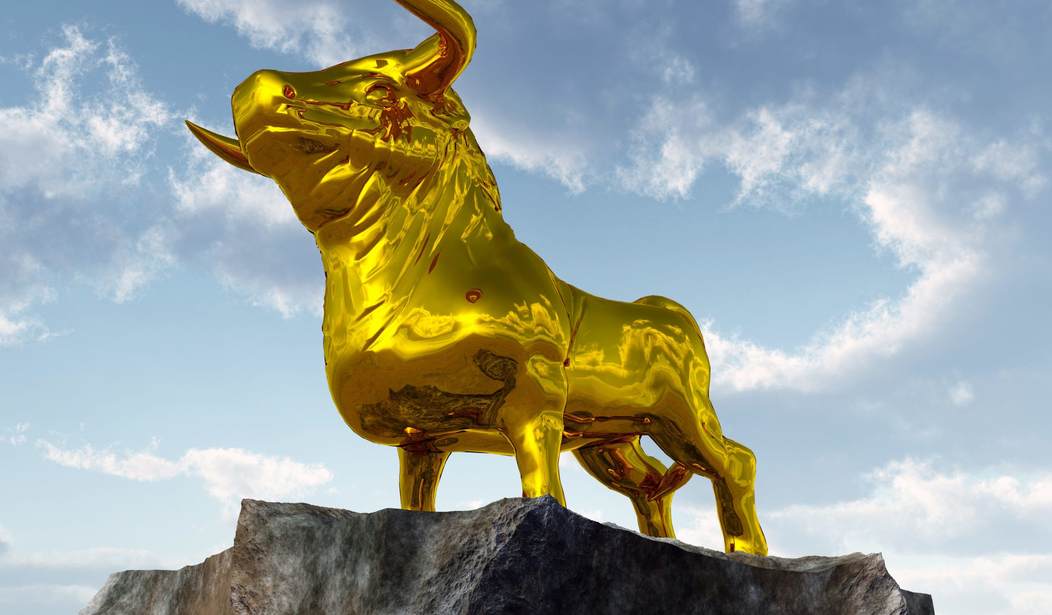Continuing a plan to get through the entire Bible in a year, follow as I journal through the reading. I have chosen a straightforward approach that begins in Genesis and ends in Revelation. This will not be an in-depth study or a comprehensive commentary. There are plenty of sources for such material. This is stage one Bible reading, taking the text at face value and sharing impressions.
Today’s reading comes from the book of Exodus, chapters 30 through 32, finishing God’s instructions regarding tabernacle implements, and the account of the golden calf idolatry. Some impressions from the text:
- “The rich shall not give more, and the poor shall not give less, than the half shekel, when you give the Lord’s offering to make atonement for your lives.” World’s first flat tax?
- “And the incense that you shall make according to its composition, you shall not make for yourselves. It shall be for you holy to the Lord. Whoever makes any like it to use as perfume shall be cut off from his people.” Again, we see an emphasis on the concept of holiness. To be holy is to be set apart, distinct. God’s nature is defined in large part by his holiness. He is the absolute good, and cannot come into contact with anything less. The holy utensils of the tabernacle were meant to model this.
- “And I have given to all able men ability, that they may make all that I have commanded you…” God provides his people with the ability they require to fulfill his commissions. He does not ask what cannot be done.
- The betrayal at the base of Mount Sinai, where the people of Israel convinced Aaron to craft a golden calf to worship as an idol, is utterly breathtaking. Here were a people who had seen incredible miraculous wonders, who had been saved time and time again — from the pursuing Egyptians, from hunger, from thirst. Here were a people who were led through the wilderness by a literal pillar of cloud and fire. They consecrated a covenant with the Lord just before Moses ascended the mountain, pledging to remain faithful. Yet, in a matter of days, they turned from him to a false idol. It was the equivalent of cheating on your spouse on the wedding night, utterly disgraceful. And Aaron, God’s appointed high priest, went along with it! Clearly, Aaron was not chosen for that role due to merit.
- When the Lord tells Moses that he intends to consume the rebellious Israelites and begin anew with a nation born of him, Moses intercedes on Israel’s behalf. God relents, and thus is modeled the intercessory role of Jesus Christ between believers and the Father.
- “… then Moses stood in the gate of the camp and said, ‘Who is on the Lord’s side? Come to me.'” Again and again, we see people given the opportunity to repent, even of great sin.
- Though those who repented of their sin were spared the full weight of God’s wrath, their actions did not go without consequence. They were called upon to kill their unrepentant brethren, their sons and brothers. They also endured an unspecified plague on account of their sin. Sin always comes at a cost, even when forgiven.
Return soon as we continue our year-long journey through the text of the Bible.
Catch up on the previous entries:
Archived Genesis posts (scroll down in link).
Moses gets a mission from God. – Exodus 1-3
Believer and unbeliever, each defy God’s commandments. – Exodus 4-6
God makes his name known by plaguing Egypt.– Exodus 7-9
The final plagues, and God’s deliverance of Israel from their captivity in Egypt. – Exodus 10-12
“Sing to the Lord, for he has triumphed gloriously…” Exodus 13-15
God continues to provide, even for an ungrateful people. – Exodus 16-18
Moses receives the Ten Commandments. – Exodus 19-21
Israel receives the Law at the foot of Mount Sinai. – Exodus 22-24
God commissions the building of the tabernacle. – Exodus 25-27
Equipping the priests of Israel. – Exodus 28-29









Join the conversation as a VIP Member